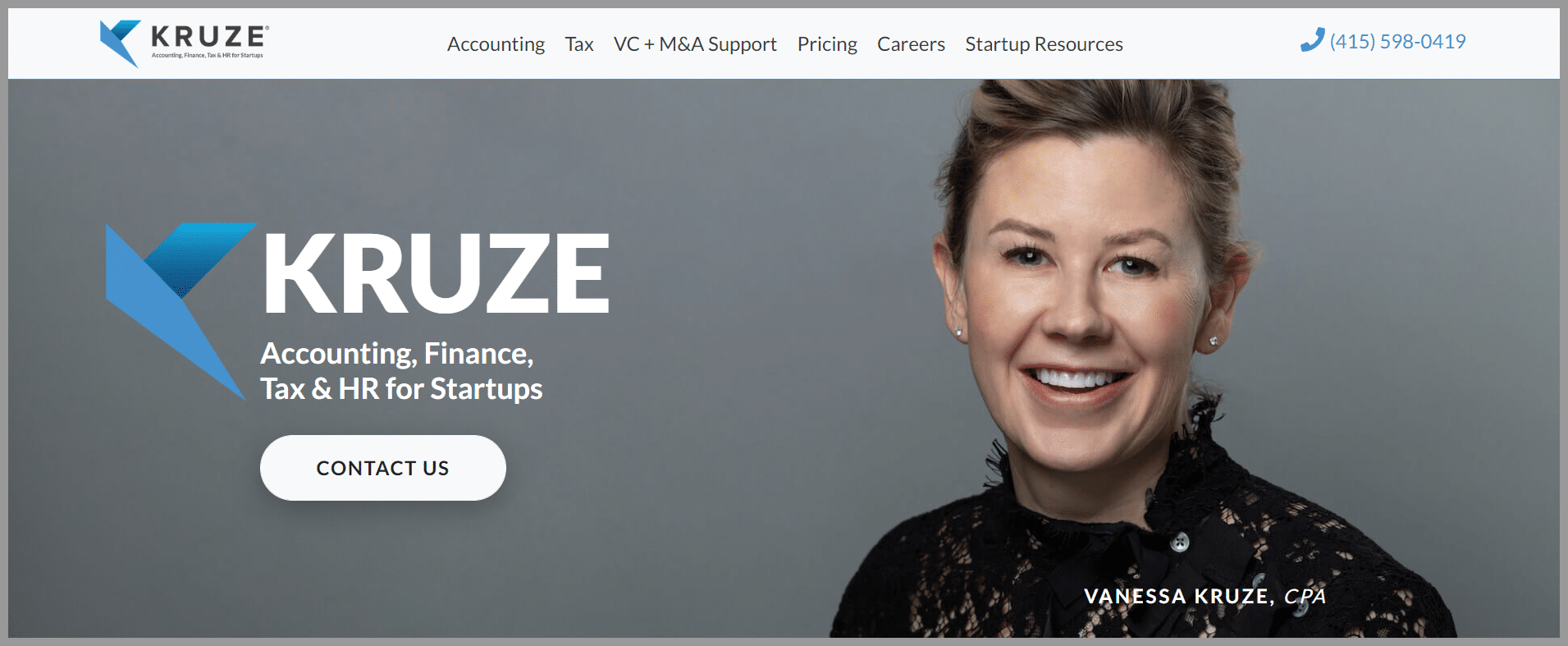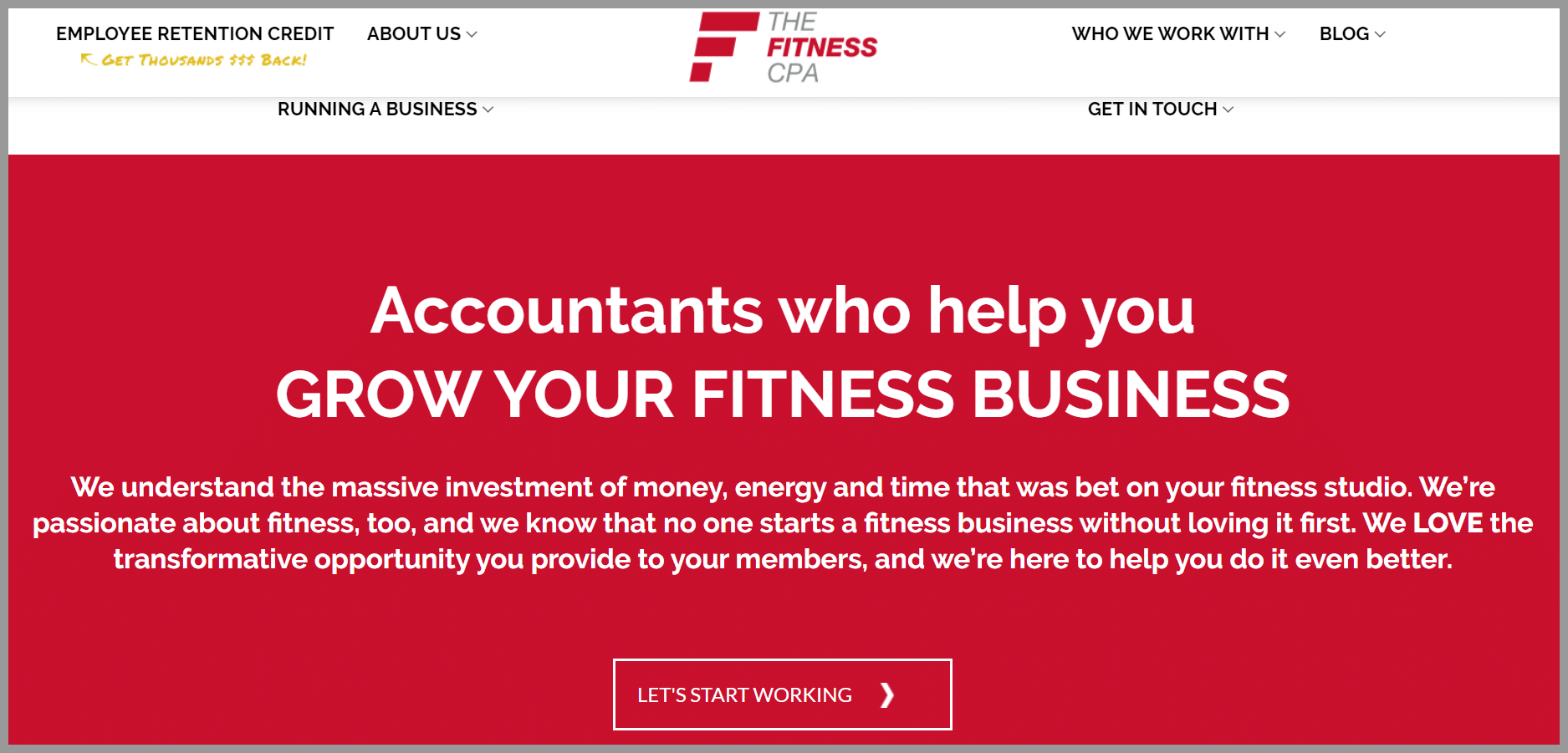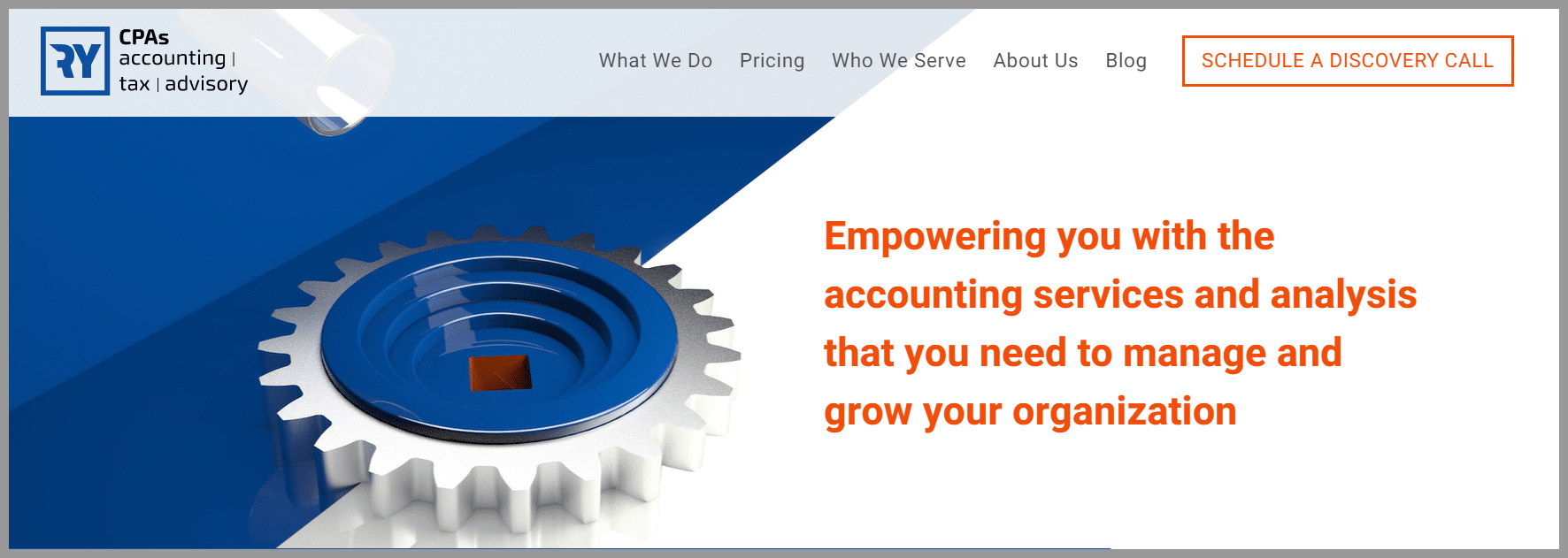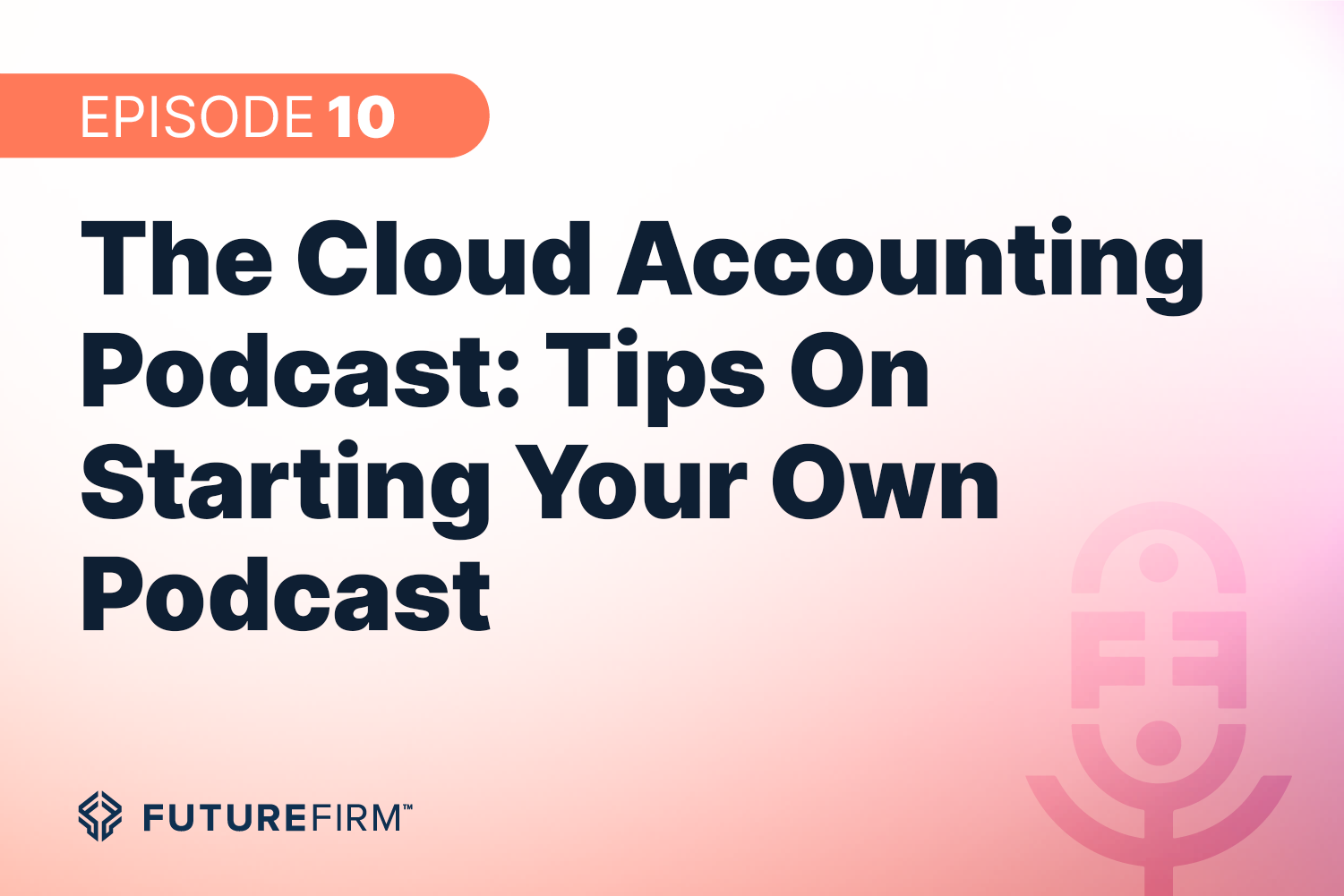Finding the right accounting niches is a tried, tested, and true way to quickly grow your firm.
In this article, you’ll hear about:
- What a niche is
- The 5 benefits to niching
- The 1 big disadvantage when you niche
- How you can niche
- 10 great examples of accounting niches
Read on to hear more!
What is an Accounting Niche?
A niche is another word for “market” or “industry.”
You’ve probably seen a firm (or more) targeting specific types of business or segments of the market. Dentists, SaaS companies, B2B services, eCommerce, and the list goes on. In simple terms, these are niches.
A subterm is “niching” which means your firm specializes in servicing a particular market or industry. Your marketing material speaks to those businesses, the website is full of their industry language, even your services are tweaked to cater to that subset of business.
With that clear, let’s now talk about why you might want to niche in the first place.
Why Niche? (ie. 5 benefits)
- Streamlined business model: With a niche, you’re not all things to all people. You’re the best option for a select portion of them. Serving clients with similar needs, language, and structure means similar onboarding, service delivery, and decision-makers. All of these add up to more systematic processes for your team — not to mention fewer processes.
- Deeper understanding, deeper services: Startups care about “burn rate” and “financing” while dentists want to open new offices and entice dentists to work for them. The better you understand your niche, the more meaningful services you roll out.
- Easier to market and sell: Pair similar decision-makers, revenue, and business goals with your understanding of their specific needs and you gain the ability to create powerful, targeted marketing campaigns that really appeal to your niche. Plus, you’ll be able to build out long-term strategies, like content marketing and SEO.
- Commands a premium price: Specialized and customizable service always commands a premium in the marketplace. Accounting services are no exception (so long as you can communicate the benefits and value of said services).
- Higher lifetime value of the client: Yes, partly because you’re commanding a higher price. But it’s also the relationship that forms. Think about it, you build custom reporting, give targeted industry advice, and know not only what clients need, but why, it makes it harder for the client to leave you.
Disadvantages of Accounting Niches
Really, there is one big drawback which is the whole “eggs in one basket” dynamic.
For example, no accounting firm wanted to rely solely on restaurants during the initial phase of the pandemic as most were shut down for a prolonged period which meant that many firms niching in this area saw substantial drops in revenue.
So while there are many advantages to niching, one big risk does exist.
How to Niche (Find Your Ideal Client)
How to niche begins with thinking about the types of customers that are perfect for your firm and its growth, otherwise known as ideal clients. Building an ideal client profile (ICP) and it’s something I’ve talked about a fair bit in Future Firm Accelerate®.
Really what it comes down to is analyzing your current clients, identifying your best ones and coming up with a list of common characteristics that they share in common. What they have in common becomes your niche.
First, the ICPs you settle on may be rigid, a bit more loose, or somewhere in between. But whatever your profile makeup, sticking to finding and closing those clients is an extremely important aspect of niching.
The technical terms here are “psychographic,” “firmographic,” and the most well-known “geographic.”
- Psychographic traits are things such as personality traits, attitudes, values, and interests. An example is selling virtual CFO services to a growing startup’s COO. This person has a lot to prove, and wants things to run smoothly. There’s a need and angle there for your service, and once you have the profile, you’ll know who you’re looking for in your client search.
- Firmographic are traits of the businesses within your niche. For instance, if you’re targeting dentists, perhaps you’d settle on those doctors with 2-4 offices, certain annual revenue, number of employees, and so on.
- Geographic details are all about the country and region. Certain areas have large groupings of certain industries, like Silicon Valley for tech and software.
If you’re a firm with a number of clients, in various industries, different points of contact (in a multitude of roles), and have varying pricing and services for those customers — it’s possibly time to take a look at the roster to better evaluate your niche.
10 Types of Accounting Niches
Here’s a non-exhaustive list of some of the accounting niches out there along with some firms that focus on them.
1) Software and SaaS Startups
Startups are a hot niche, simply because of the number of Venture Capital and investor dollars thrown into so many of these businesses. They need to track, manage, and spend their seed (or additional rounds).
There’s also hiring, building accounting systems, and a host of other specialized accounting services these businesses need.
Example: Kruze Consulting

Kruze targets software and SaaS startups with specialized services and content marketing geared toward founders.
2) Ecommerce
Buying online is a huge business, from unique single-product shops to large retail giants with no brick-and-mortar shops. With complex shipping, multiple sales channels, and the other needs of a growing business, eCommerce is a solid niche.
Example: Bean Ninjas

Notice how Bean Ninjas mention that they’re experts in specific ecommerce tools, right in the hero image of their website. As soon as a business owner hits the page, they know this firm is talking their language.
3) Real Estate
Real estate has its ups and downs, in a long enough timeframe. But it’s also not going anywhere, and as we’ve seen over the past year, crises don’t necessarily spell doom for housing.
Example: The Real Estate CPA

In addition to tailoring their offering toward real estate businesses, this firm also built some passive income drivers showing industry pros tax-saving tips.
4) Contractors/Construction
Similar to real estate, and great for offering tax prep services, including helping these kinds of businesses figure out their job costing.
Example: Check the Level

In general, notice how deep these firms go into their niches. Even the name of their company reflects their focus. Check the level also creates clear messaging around ensuring contractors that each project will be financially well-managed.
5) Cryptocurrency
Crypto has insane (and growing) popularity, is gaining traction amongst the financial influencer community, and the regulations are increasing. All of these factors make a very lucrative niche, from new high net worth individuals to companies looking to invest or take crypto payments.
Example: Founder’s CPA

Crypto is one target sector of Founder’s CPA (another is obviously startups). They’re delivering tailored content on how to file taxes, crypto accounting software, and other key terms crypto buyers are searching for.
6) Law Firms
Law firms deal with massive levels of compliance and regulatory issues. Trust is a big deal, and specializing in the specific needs of law practices helps build trust faster. These issues make legal professionals a great niche since they understand the need for specialized services.
Example: KORE Accounting Solutions

A quick look at KORE’s homepage and you understand the trust issue. They put credentials, testimonials, headshots of accountants, and several other elements that dig into showing who they are and why they’re the right choice for lawyers.
7) Fitness / Gyms
One of the hardest-hit industries early on in the pandemic. However, like other impacted industries on this list, they’ve adapted in many ways to overcome and even expand health services to a broader audience.
Example: The Fitness CPA

This CPA firm created content around surviving during the pandemic, turning the downturn into a positive. And since home gyms, remote training, and consultations exploded, it’s likely a choice that turned some heads in the fitness industry.
8) Restaurants and Food Service
Restaurants are a solid niche, even if they did shut down for a period of time during the pandemic. It’s almost at a reset level, with new advancements in delivery service and takeout. We’ve seen a tremendous amount of innovation in food service over the last two years.
Example: Ry CPAs

Ry is another example of a job well done communicating how stimulus changes/grants work for and affected Restaurants.
9) Non Profits
Not-for-profit (NFP) companies are another powerful niche required to document and report details on finances. It’s also a decent-sized niche with religious, social, and a number of other entity types, all falling under NFP status.
Example: Jitasa

Jitasa is an international firm specializing in NFP bookkeeping, tax, and advisory services. It’s all they do and have garnered the trust of massive organizations, including Boys and Girls Club.
10) Cannabis
Like crypto, cannabis is high-growth, increasing regulation, and a relatively new (legal) business model. One wrong move is costly and possibly involves litigation, so a tailored accounting experience is an easy sell.
Example: The Green Leaf CPA

Using targeted language and on-point branding, Green Leaf CPA knows their ideal client. Even the favicon of their website is a cannabis leaf.
Is Niching for Your Firm?
Choosing a target market is not about reducing the number of customers, but about improving the focus of your firm. Understanding this mental shift is paramount to the success of pulling off the niche firm business model.
I have personally seen the firsthand fruit of properly selecting, marketing, and serving a particular market.
But as with every business decision, it’s up to you and the owner. Which is why this resource stops just shy of telling you, “Of course you’re ready for an accounting niche.”




